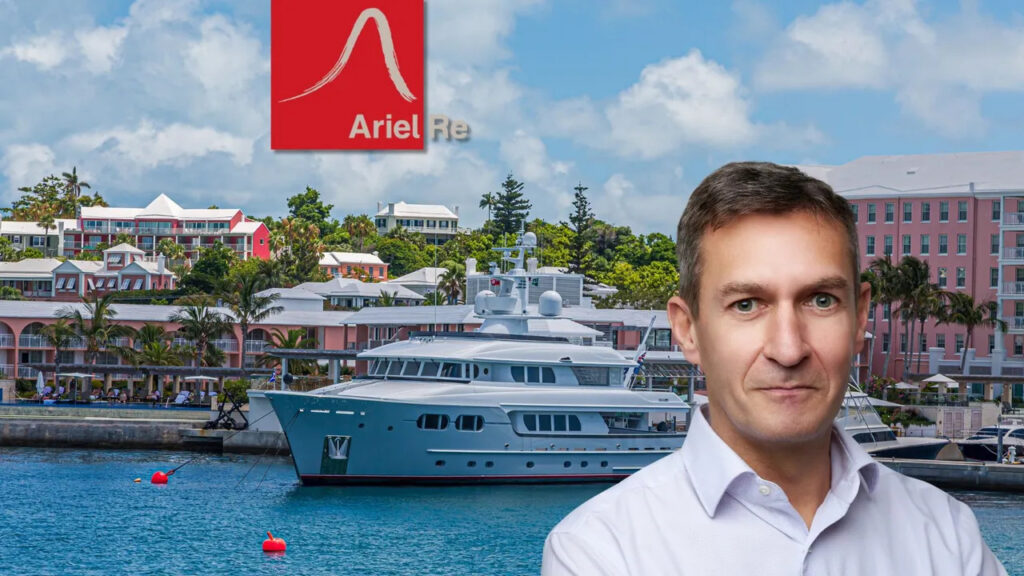
Catastrophe reinsurance rates need to increase outside the US because of the increased frequency and severity of catastrophes, underwriters from Bermuda-based Ariel Re say. But the picture globally is nuanced: Joel Willens and Tom Orton, senior underwriters at Ariel Re, told Intelligent Insurer that the reinsurer remains in the market for catastrophe reinsurance even as some of its competitors are reducing their exposure—provided the rate and terms and conditions are sound.
Willens, head of international property insurance at Ariel, said: “From a macro perspective, the non-US space has not seen quite the hardening we’ve observed in the US. But we’re seeing things moving in the right direction: real discipline from reinsurers seeking clarity of coverage and alignment.
“It’s a co-participation from the ceding companies, whether that’s in the form of higher retentions, or paid reinstatement provisions.
“What we’ve observed is the hardening that’s happening outside of the US is largely limited to loss-impacted geographies. So where there were losses in Australia, rates have moved a lot. Retentions have moved a lot, co-participation is moving. The same is true in New Zealand from early 2023 events.”
Orton, property reinsurance underwriter at Ariel, added: “In France, in particular, the retentions have moved up significantly following all the hail events that happened last year.
“The retentions have gone up, but they needed to. Those retention levels have been at the same dollar number for 10 years, so with inflation running at 3 percent per annum, and then the last two years around 10 percent per annum, we’re still not at the level we were in 2010 relative to the cost of inflation.
“It’s been a long time since those retentions have moved up. Now the balance has shifted a little towards the reinsurer in terms of not picking up a lot of those small losses,” he explained. “The cedants get this as well—they understand that there need to be price increases.”
Willens added: “The sustainability of the reinsurance panel depends on the ceding companies managing their retentions. Something that helps make that possible is that the original insurance companies are achieving rate rises on the primary business, so they can fund a greater retention and rising reinsurance costs.
“There is a time lag for the primary rate—and we are sympathetic to the primary insurance companies—to roll through, but it’s happening.”
Buyer awareness
Willens said that while retention points had stayed flat in nominal dollar terms, they had soared “in terms of the attachment probability of those layers”.
“The buyers are aware that reinsurers require a greater alignment of interest retentions, reinstatement provisions, co-participations and rate.
“It’s harder in geographies that haven’t had the losses, but they’re still aware. There’s awareness that this is a global marketplace, and that reinsurers don’t operate in isolation,” he said.
Willens added that the increase in frequency and severity of natural catastrophes meant losses were unlikely to decrease, citing the landfall of Typhoon Saola which battered Hong Kong in early September with category 3 winds.
“Hong Kong is built like a fortress and we understand that the recent event there isn’t going to do a whole lot of harm to the reinsurance market,” he said. “But boy, that was a big typhoon, and everyone’s eyes pop when you see it.”
Similarly, he said, Hurricane Idalia, which struck northern Florida, Georgia and South Carolina before going back out to sea and sideswiping Bermuda, was a near-miss for Florida and re/insurers.
“That storm’s path was not far from creating an enormous insured loss in Florida,” he said. “The whole market needs to revisit how near a miss that was. The path it took was about as sparsely populated as you could find if you looked at the population centres in in Florida.
“We were watching that storm very closely because it would have been a market-moving event.”
Pricing clarity
Willens said the message Ariel planned to carry to Monte Carlo was “clarity of coverage”.
He said the company prices very specifically for different types of coverage.
“If we are selling reinsurance in Japan and the buyer wants all-perils coverage, then we need to price specifically for typhoon, earthquake, flood, snow pressure, and hail. All these perils can impair a reinsurance transaction.
“Gone are the days when you would say: ‘the principal exposures there in Japan are typhoon and earthquake, we’ve come up with a price for that’, and off you go.
“But at Ariel if we’re covering a peril, we have a price for it. It’s very specific pricing, and sometimes that makes us uncompetitive, price-wise. We’re not going to be everything to everyone,” he added.
“We have to sleep at night and we’re stewards of our corporate capital. We have no mandate to grow for the sake of growth or diversify for the sake of diversification.
“Instead, Ariel’s mandate could be described as: ‘Study each risk thoughtfully and thoroughly. Price it sincerely. Be helpful in the process’.
“We think it’s absolutely fine to price early and to quote a variety of options. That early clear communication is one of our cornerstone tenets.”
That ability to communicate will be necessary if Willens and Orton are right that it is unlikely there will be fewer natural catastrophes in the coming years.
“We don’t see anything on the horizon that suggests the abatement of severity and frequency of natural catastrophes,” Willens said. “Climatologically we’re in a state where things can get worse from here. Sea surface temperatures in the Atlantic have reached record highs. August 2023 was the hottest month on record globally.”
Nonetheless, Willens said, Ariel remains committed to writing risk and the catastrophe reinsurance sector even as other companies are reducing their exposure or exiting entirely.
“Ariel Re is risk-willing—when the retentions and the price are right. The clarity of coverage exists in the contract, so we’re looking for partners to trade with who are willing to match what they buy with the clarity and certainty that we’re willing to sell,” he concluded.





